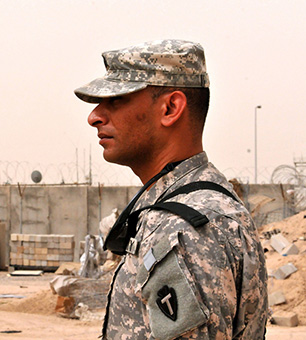Did you know that Truthout is a nonprofit and independently funded by readers like you? If you value what we do, please support our work with a donation.
Beirut — Citing increased threats to American citizens as the United States debates military action in Syria, the Obama administration on Friday ordered nonessential personnel out of its embassy in neighboring Lebanon.
The State Department also said it would allow nonessential staff and their families to leave other key regional diplomatic outposts in Turkey and Iraq.
As the Syrian civil wars rages on, violence has been growing steadily in Lebanon between supporters and opponents of the insurgency against Syrian President Bashar Assad’s government. Car bombings in the past month have killed nearly 100 people in Lebanon, and kidnappings, for both political and economic reasons, became commonplace in the last year.
The State Department’s statement attributed the decision to let some diplomats leave and warn other Americans to “an abundance of caution,” but three different U.S. government officials have warned Americans recently of a direct and specific threat to U.S. citizens working and living in Lebanon from Syria’s ally Iran if the Obama administration takes military action against Syria for an alleged chemical-weapons attack on a rebel-held Damascus suburb last month.
The three government officials, who spoke to different Americans over 10 days, described a specific kidnapping threat against Americans living in Lebanon. One said the information about the threat came from intercepts of Iranian officials passing on orders to Iran’s numerous proxies and allies in Lebanon’s fractious political scene.
One of the officials also reported a threat against the U.S. Embassy in Baghdad. That threat was attributed to an Iranian militia that was ordered to attack the embassy or other diplomatic targets if strikes against Syria took place.
Lebanon and Iraq are considered particularly vulnerable to Iranian and Syrian covert operations because of their porous borders with Syria, as well as an abundance of battle-tested allies in place to conduct such missions.
Two Turkish airline pilots were kidnapped from a busy street in Beirut last month in retaliation for the continued imprisonment by Syrian rebels of Lebanese nationals who are accused of helping the Syrian regime battle the insurgents. Turkey had cut off diplomatic ties with the Assad regime and expressed support for the opposition.
A number of Persian Gulf countries – including the United Arab Emirates, Qatar, Saudi Arabia and Kuwait – either have barred or discouraged travel to Lebanon, citing those governments’ support for the rebels.
Although the Lebanese Shiite Muslim militant group Hezbollah is the largest and best-funded Iranian ally in the world – not to mention one of the world’s most effective nongovernmental political-military groups – it’s hardly the only option in Lebanon, where a slew of Iranian- and Syrian-funded militant groups openly keep headquarters and training bases without interference from Lebanon’s weak and ineffective central government.
A Hezbollah military commander denied that his group would consider any sort of action against American civilians, regardless of their government’s involvement in Syria. While one U.S. government official cited the group’s history of taking hostages on behalf of Iran in the 1980s as a major concern, the Hezbollah commander said his group had learned that such moves were counterproductive.
“The hostages from the 1980s have hurt us as a resistance project more than any Israeli bomb,” he said, speaking only on the condition of anonymity because he wasn’t authorized to talk to a reporter. “The idea we would kidnap Americans today in Beirut is ridiculous. We even have a religious ruling that says no targeting civilians.”
When he was asked whether Hezbollah’s allies among more secular groups in Lebanon would follow such religious edicts, he demurred.
One area of concern to Western intelligence officials in Lebanon – which hosts a U.N. peacekeeping force made up of the citizens of a variety of countries, including France, which has called for strikes – remains Hezbollah members who are suspected of working directly for Tehran, possibly without notifying their Hezbollah superiors.
The Special Tribunal for Lebanon, which is investigating the 2005 murder of former Prime Minister Rafik Hariri in a car bombing that took 20 other lives, has indicted several members of Hezbollah in the bombing, but it’s also described a semiautonomous unit of Lebanese Shiites within the group who have long-standing ties to Iranian intelligence. Of particular concern to intelligence agents watching over Westerners in Lebanon is Hezbollah commander Mustafa Badreddine, who served a prison sentence in Kuwait for the 1983 bombing of several foreign embassies in Kuwait and is under indictment by the special tribunal.
“Hezbollah doesn’t need to kidnap anyone,” said one Western intelligence official working in Beirut, who asked to remain anonymous because of the sensitivity of the topic. “Mustafa can handle anything Iran wants without it becoming a big deal, and that doesn’t count the groups that are even more obscure. So I have no doubt (Hezbollah chief Hassan) Nasrallah can say his group wasn’t involved if something does happen. He could even mean it.”
Trump is silencing political dissent. We appeal for your support.
Progressive nonprofits are the latest target caught in Trump’s crosshairs. With the aim of eliminating political opposition, Trump and his sycophants are working to curb government funding, constrain private foundations, and even cut tax-exempt status from organizations he dislikes.
We’re concerned, because Truthout is not immune to such bad-faith attacks.
We can only resist Trump’s attacks by cultivating a strong base of support. The right-wing mediasphere is funded comfortably by billionaire owners and venture capitalist philanthropists. At Truthout, we have you.
Our fundraising campaign is over, but we fell a bit short and still need your help. Please take a meaningful action in the fight against authoritarianism: make a one-time or monthly donation to Truthout. If you have the means, please dig deep.
